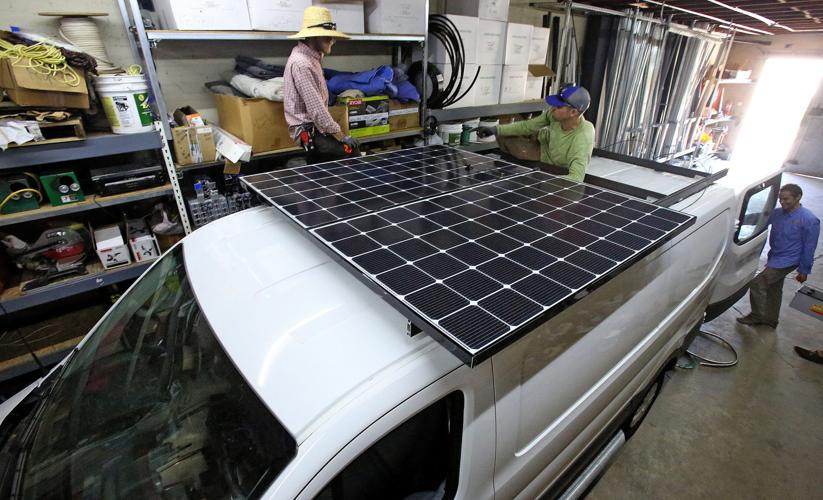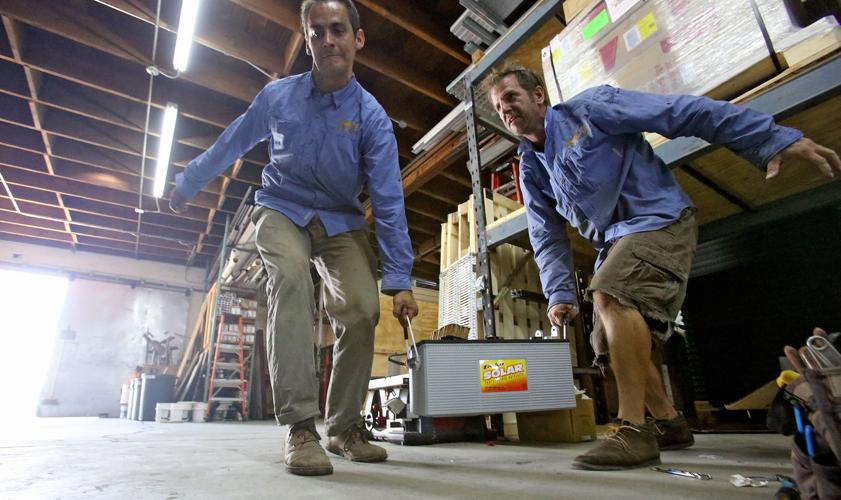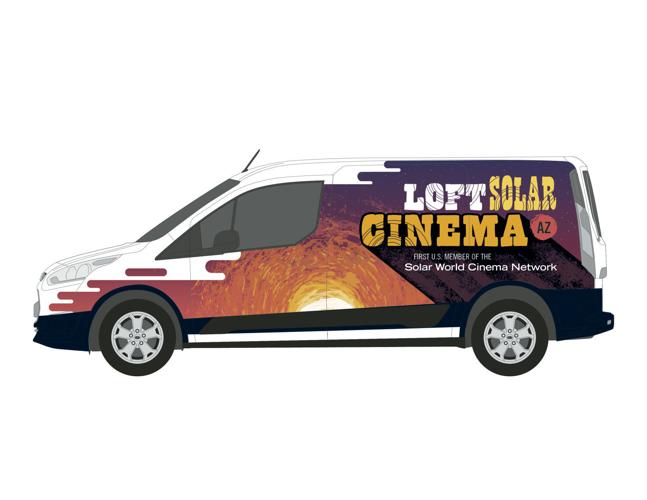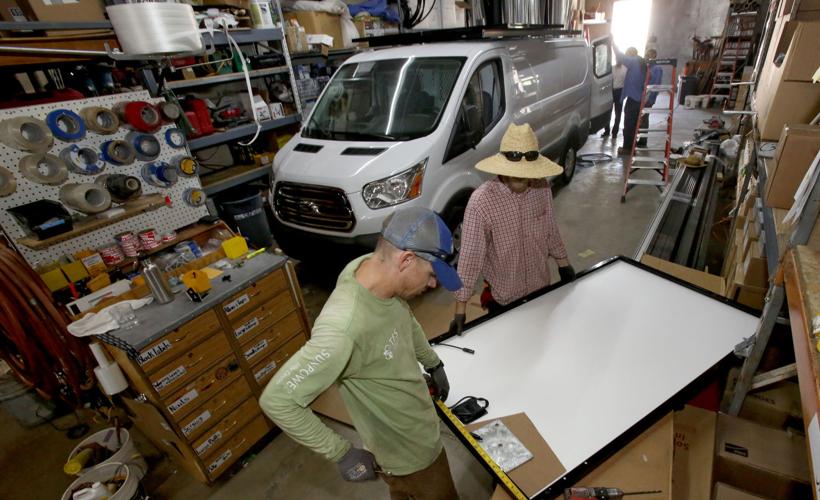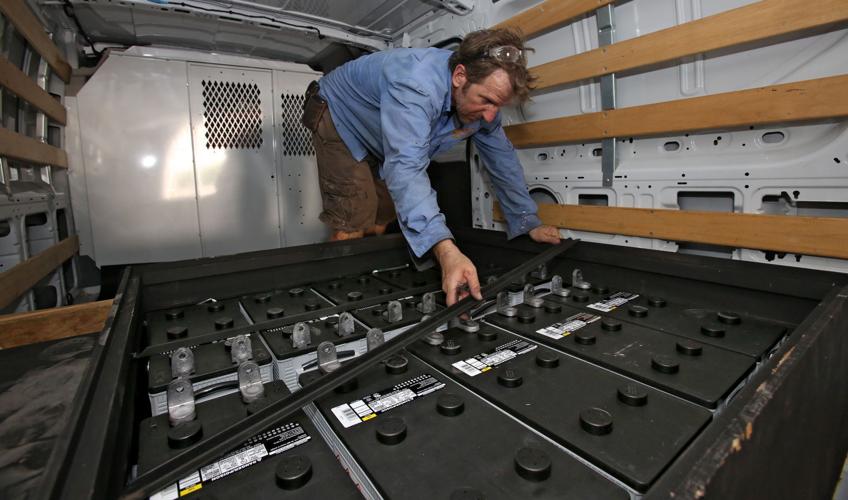The nonprofit Loft Cinema often thanks supporters before shows by projecting the names of those who made a screening possible. Starting next month, it might be adding the sun to that list.
Tucson’s independent movie theater is launching a solar-powered mobile cinema, the first in the United States that’s part of the international Solar World Cinema network.
“I think we’re the best fit for it,” said Peggy Johnson, executive director of the Loft Cinema. “It’s going to be really fun, it’s going to look great and it’s going to serve a lot of people and take a lot of great films out into the world.”
The setup is a Ford cargo van with solar panels on the roof, which charge 10 batteries and provide enough power to run a projector and sound system for about three hours, said Neil Saunders of Technicians for Sustainability.
The company is partnering with The Loft to defray the $12,000 in equipment and labor costs for the installation. The batteries, which weigh 120 pounds each, should provide reliable power for six years.
Including the van, inflatable screen and projector, the mobile cinema represents a $50,000 investment for The Loft, Johnson said, and is part of a strategic plan to increase and diversify its audience.
“One of the ways to do that is to go to them and not wait for them to come to you,” she said. “Part of that is also getting our brand and our message out about the importance of film, culturally and artistically.”
Bringing movies to the people is also what inspired Holland-based Maureen Prins to start what would eventually become the Solar World Cinema network in 2006.
After seeing a solar-powered mobile cinema run by some of her former film school classmates in the United Kingdom, she was moved by the idea of becoming a totally independent filmmaker, not only producing but also exhibiting her work.
Once she had her van running, the connection to sustainability came quickly, she said, and so did being able to address issues such as climate change without being preachy.
“Just being more of an inspiration — look, this is solar power and it works,” she said.
Over the years that changed into bringing interesting films to audiences not only in Holland but all over the world, and including a strong, but still not overly didactic, push for sustainability and environmental consciousness.
Along with its new presence in Arizona, the Solar World Cinema network is in Chile, Uruguay, Mexico, Brazil, Indonesia, Croatia and Spain.
A cool aspect of the international network, Johnson said, is that it offers a workshop curriculum for children to learn to make animated films and for teenagers to learn about documentary filmmaking.
Documentaries produced by those young people are then selected to be shown before screenings around the world, she said.
While the aim behind solar-powered cinema is to bring independent and foreign films to audiences, it’s not about showing people what a film buff thinks is best, Prins said, but what works with what community.
“Being a curator and thinking what films you can bring to a specific audience, that’s a really creative part,” she said. “Being in the desert in Chile is totally different than being in the Netherlands.”
While The Loft won’t have to deal with such far-flung locations, it plans to work with different groups and organizations to find a good fit for films.
“What works in Bisbee might not work in Ajo, might not work in Douglas, but might be great in Tubac,” Johnson said. “We’re not going to come in and say, ‘here’s your film.’”
Still, the movies shown will not be your usual blockbuster.
“A lot of people haven’t really had the experience of seeing films that are outside the mainstream,” Johnson said, noting that many of these movies offer a different experience for audiences.
“It only takes one experience of seeing a really great film to say, ‘Oh, my God, what have I been missing?’”


